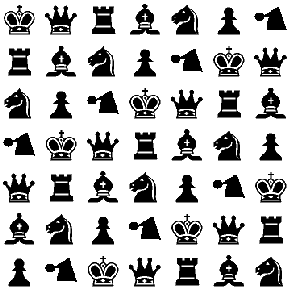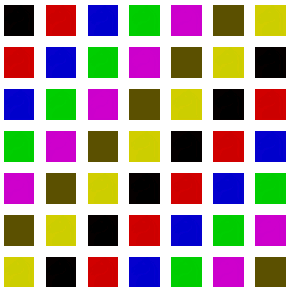 |
 |

 |
 |
0 7 14 21 28 35 42 1 2 3 4 5 6 7 1 9 17 25 33 41 49 14 21 28 35 42 0 7 2 3 4 5 6 7 1 16 24 32 40 48 7 8 28 35 42 0 7 14 21 3 4 5 6 7 1 2 31 39 47 6 14 15 23 42 0 7 14 21 28 35 + 4 5 6 7 1 2 3 = 46 5 13 21 22 30 38 7 14 21 28 35 42 0 5 6 7 1 2 3 4 12 20 28 29 37 45 4 21 28 35 42 0 7 14 6 7 1 2 3 4 5 27 35 36 44 3 11 19 35 42 0 7 14 21 28 7 1 2 3 4 5 6 42 43 2 10 18 26 34 |
Since all 49 combinations must appear, all the numbers from 1 to 49 will be in final square. Since the same numbers appear in every row of each of the latin squares, the row sums will always be the same, and so will the column sums. Finally, since the assignment of numbers to ranks and regiments is completely arbitrary, a great number of different magic squares can be constructed by this method.
4. Orthogonal latin squares and magic squares
|
|
|
© Copyright 2001, American Mathematical Society |